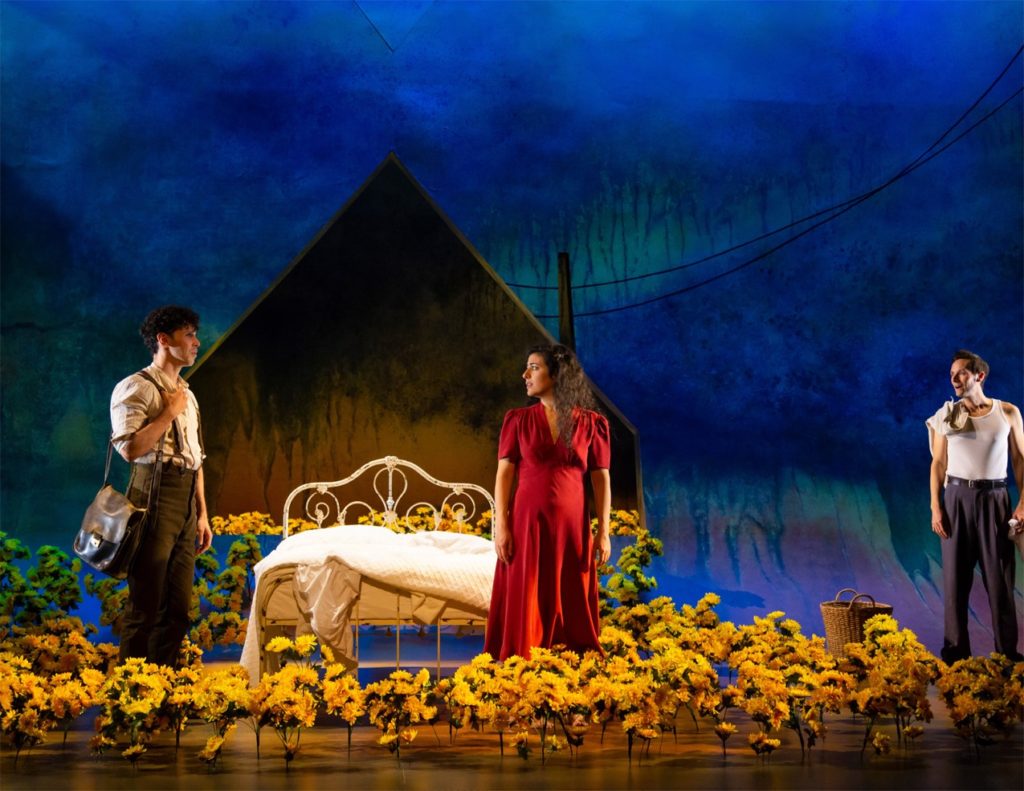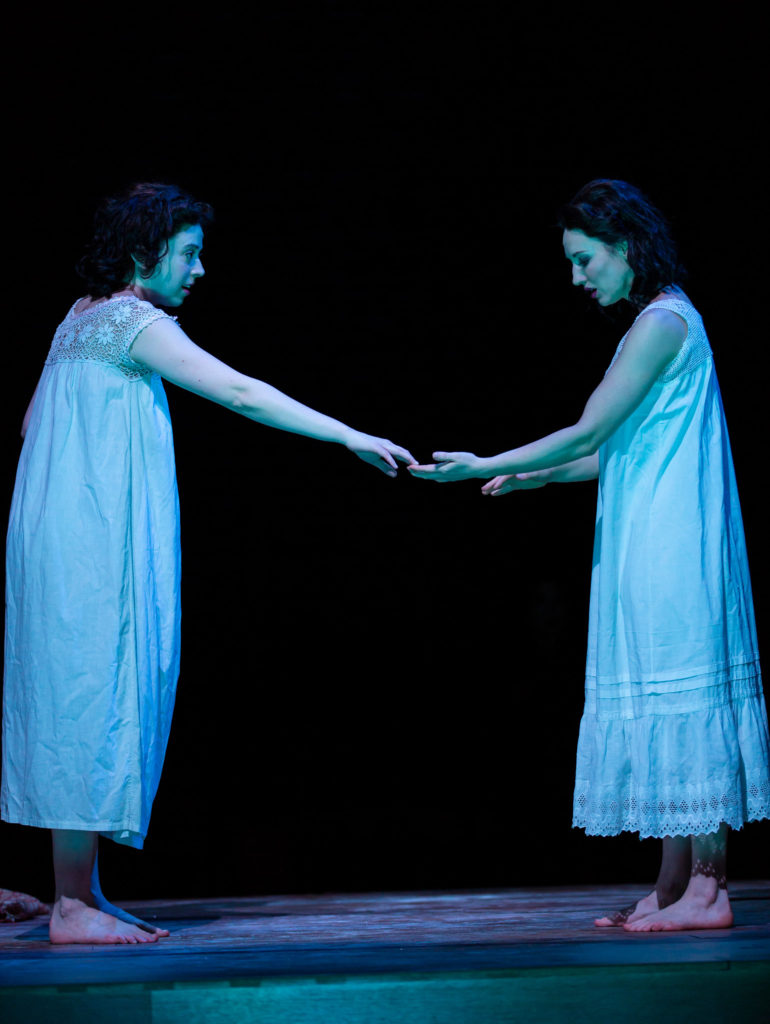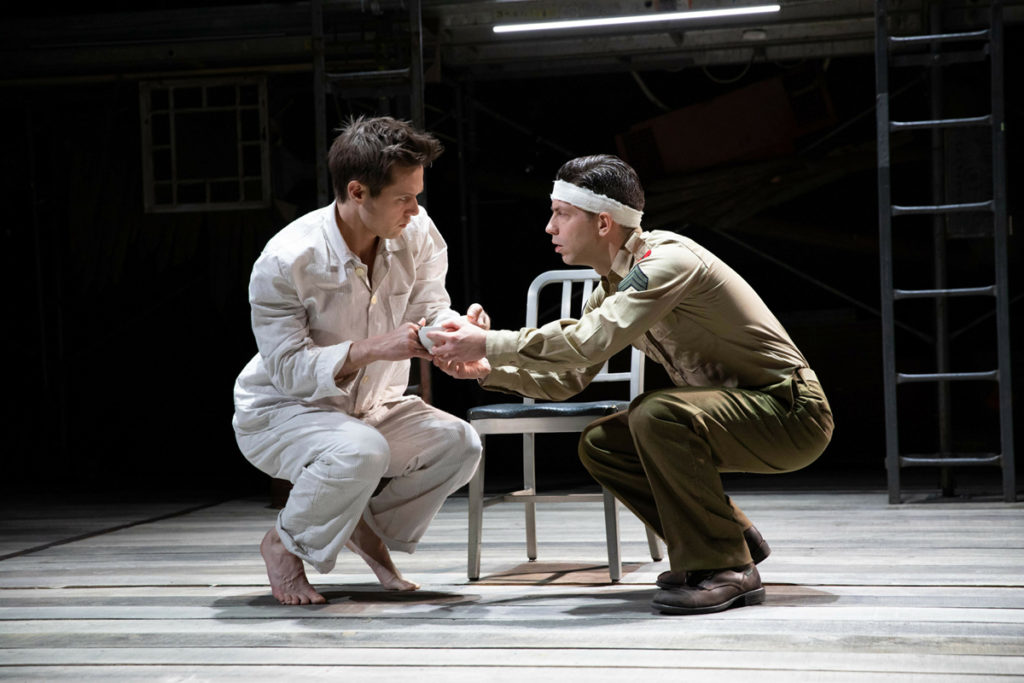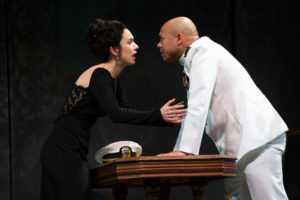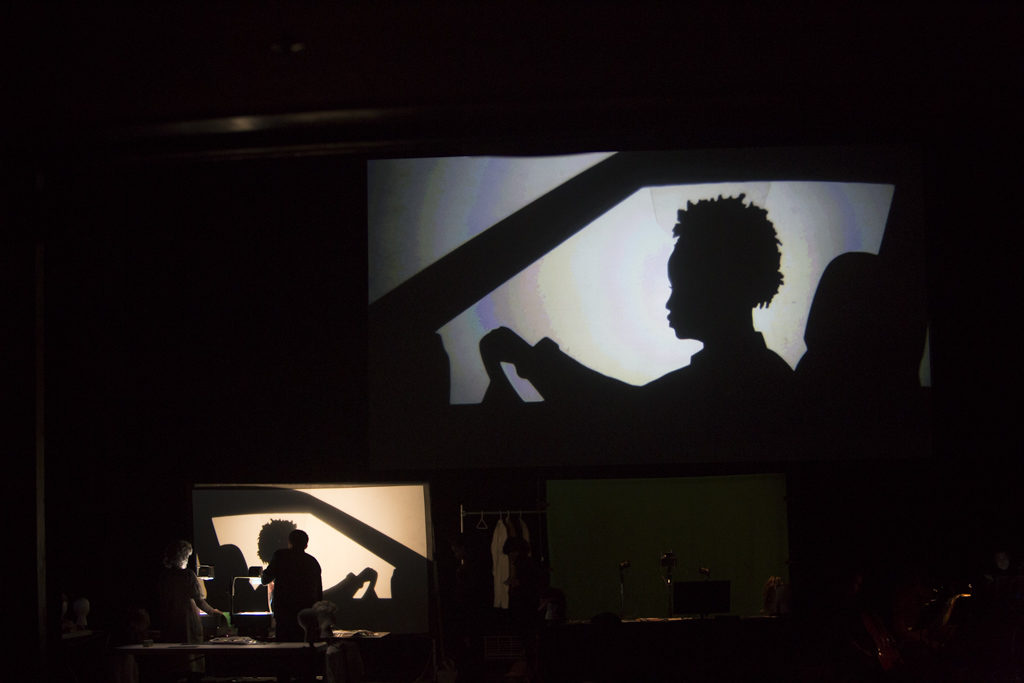The Central Square Theatre’s Production of “Cloud Nine”: a Treat
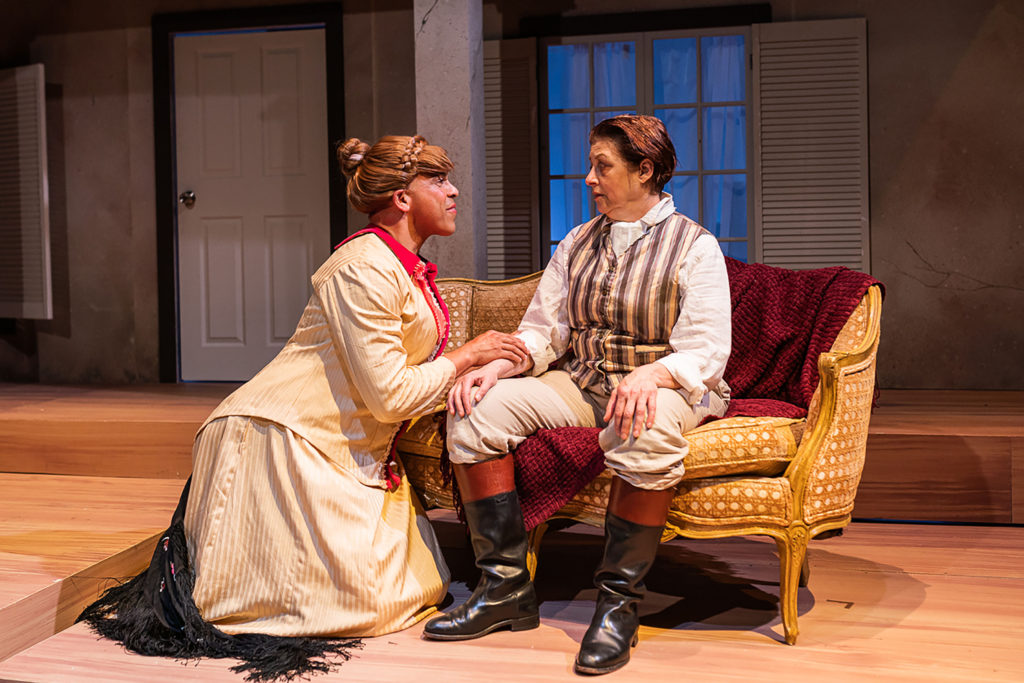
Caryl Churchill’s brilliant two act play about sex “Cloud Nine” transpires in two eras and two places, the Victorian in British colonial Africa and the 1970s me decade in London. Various characters are played by actors whose genders and in some cases their ethnicity differ from the role they are playing.
For example, Joshua (Marge Dunn), an African servant in the household of a wealthy British family is portrayed in this production by a blond white woman dressed as a man while Betty (Joshua Wolf Coleman), Clive’s wife, played by a very tall black man wearing a blond wig, wants only to please her husband and is dependent upon him to make decisions.
Besides being the master of the family, Clive (Stephanie Clayman) is an administrative officer for the British government. The couple has two children, nine year old Edward (Sophorin Ngin) who is effeminate, and Victoria, who is a doll. Edward, performed by a woman, would like to please his unaware father by becoming masculine, but it is impossible for him. Clive’s mother-in-law Maud (Kody Grassett) also lives with them as does Edward’s governess Ellen (Aislinn Brophy) who is in love with Betty. …
